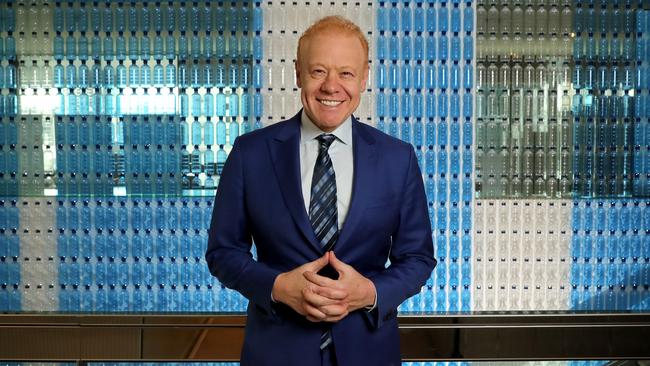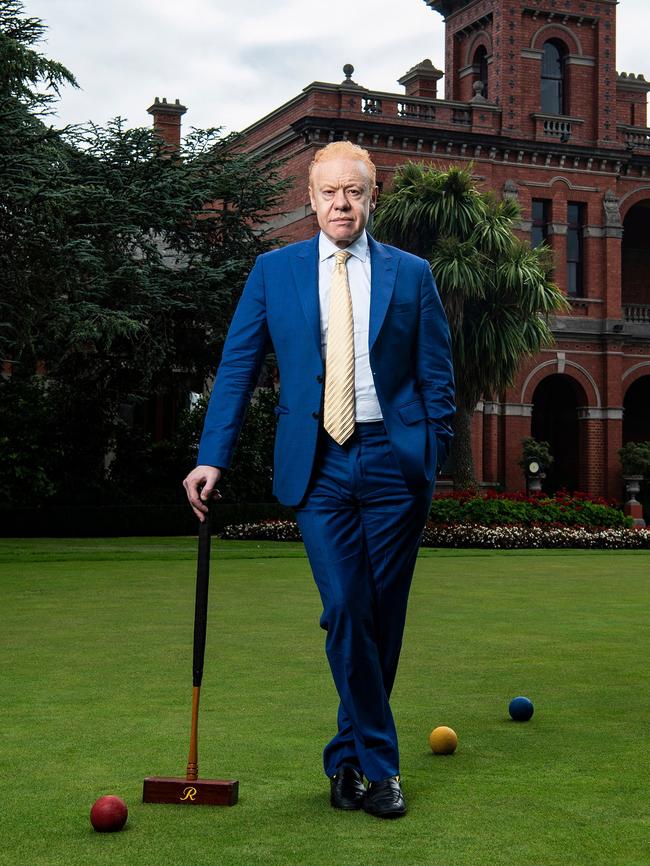Anthony Pratt wants to take manufacturing into the digital age
The billionaire cardboard box making and recycling magnate does not want to be left behind as technology becomes more important to older industries.

Anthony Pratt is determined not to turn into a dinosaur.
The billionaire cardboard box manufacturing and recycling giant has pulled off the two biggest deals of his career in both countries he operated in during the past year.
It has been about 12 months since his Visy in Australia agreed to a $1bn deal to acquire the local glass bottle manufacturing business of Owens-Illinois, the largest acquisition he has made.
Late last week he announced that his Pratt Industries would spend $US400m to build yet another 100 per cent recycled paper mill in the US, this time in Kentucky. It means Pratt Industries will have built six out of the last eight mills in the US, an extraordinary number for a mature industry and proof there is plenty of growth yet in American manufacturing.
It is well and truly a boom time for an older-style business that is actually tailor-made for the e-commerce era. As Covid keeps consumers at home they’re ordering goods to be delivered, and they’ll often be packaged in a Pratt-made box.

Pratt tells The Australian that the recently completed 2021 financial year was a record for his business, with revenue rising from about $7bn to $9bn.
But he is well aware of being right in the middle of the digital era for business, and his biggest worry is not adapting his companies for modern times.
“I believe that going digital or pivoting to digital is a great challenge, particularly for non so- called hi-tech companies like ours. In other words it‘s not just the Silicon Valley people that need to go digital, it’s all of us.”
Visy and Pratt Industries make boxes for a diverse range of clients, from the likes of Domino’s Pizza to Amazon and Home Depot, the US version of Bunnings. Think pizza boxes, boxes to pack belongings in when moving houses, packaging for goods delivered to supermarkets and just about everything in between.
But, as Pratt says, it is relatively homogenous business to be in, which is why he’s striving to use technology for a range of business improvements.
His ideas range from the box-making version of a food delivery app – “We could have a customer order a particular box, they would be told when it was going down the production line, when it was finished and then when it being delivered to them and when it is arriving” – to finding efficiencies in the factory.
–
Anthony Pratt
- Age: 61
- Lives: Melbourne
- Estimated wealth: $21.27bn
- Source: Manufacturing
- Secret of success: Building mills to make recycled cardboard boxes for packaging goods as e-commerce booms
Source: The List – Australia’s Richest 250
–
Pratt’s latest idea is to have a company such as Amazon Web Services place sensors on every piece of machinery in his 250 or so factories across Australia and the US.
Technology would hopefully help stop cybersecurity breaches. But data from the machinery would be tracked to check on wear and tear. The idea is that just as wearable technology tracks training loads for athletes to help cut down injuries, maintenance and repair costs could be lessened if breakdowns are prevented.
“It is preventive maintenance,” says Pratt. “You have artificial intelligence predicting what may go wrong. If you’re spending $300m a year on maintenance you might be able to reduce that a bit.”
Pratt estimates that Pratt Industries has about 7 per cent of the cardboard box market in the US. While that is a solid chunk of a huge market he wants to go higher after committing to spend $US400m on the new mill in Henderson, Kentucky.
It is the largest built in Pratt Industries’ 30 year history and will create about 1000 full-time jobs. A cardboard box factory to be built next door will create another 320 jobs.
“Our focus is all about the rebirth of the great American manufacturing capability, especially in regional America,” says Pratt. “And this investment represents another example of our commitment to building America’s green infrastructure, including clean energy.”
When the mill and factories are built by the end of 2023, Pratt will have spent about $10bn in three decades, making it the fastest growing company in its industry. It is now the fifth-largest in the sector, having started as the 46th.
His biggest deal in Australia was paying $1bn for the glassmaking business of Owens-Illinois in August last year. Pratt says under Visy’s guidance the company has already increased the recycled content of its glass from 33 per cent to 43 per cent.
He also believes that the investment could be worth triple the acquisition price within about eight years as the market for beer bottles and other glass grows.





To join the conversation, please log in. Don't have an account? Register
Join the conversation, you are commenting as Logout